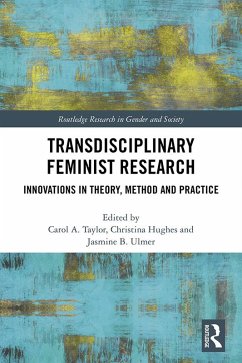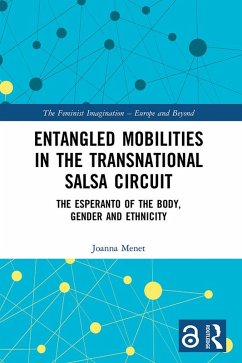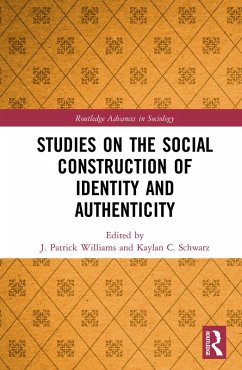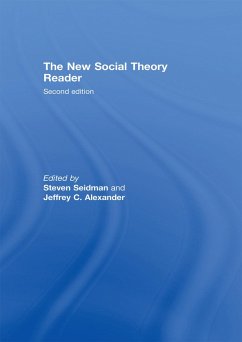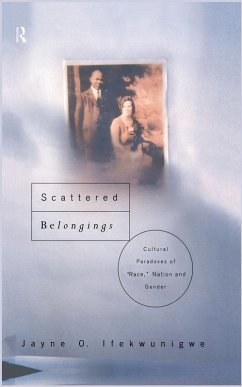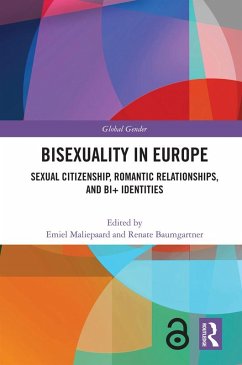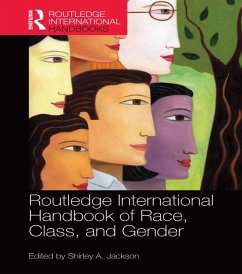
Transdisciplinary Feminist Research (eBook, ePUB)
Innovations in Theory, Method and Practice
Versandkostenfrei!
Sofort per Download lieferbar
41,95 €
inkl. MwSt.
Weitere Ausgaben:

PAYBACK Punkte
21 °P sammeln!
What is feminist transdisciplinary research? Why is it important? How do we do it? Through 19 contributions from leading international feminist scholars, this book provides new insights into activating transdisciplinary feminist theories, methods and practices in original, creative and exciting ways - ways that make a difference both to what research is and does, and to what counts as knowledge. The contributors draw on their own original research and engage an impressive array of contemporary theorising - including new materialism, decolonialism, critical disability studies, historical analys...
What is feminist transdisciplinary research? Why is it important? How do we do it? Through 19 contributions from leading international feminist scholars, this book provides new insights into activating transdisciplinary feminist theories, methods and practices in original, creative and exciting ways - ways that make a difference both to what research is and does, and to what counts as knowledge. The contributors draw on their own original research and engage an impressive array of contemporary theorising - including new materialism, decolonialism, critical disability studies, historical analyses, Black, Indigenous and Latina Feminisms, queer feminisms, Womanist Methodologies, trans studies, arts-based research, philosophy, spirituality, science studies and sports studies - to trouble traditional conceptions of research, method and praxis. The authors show how working beyond disciplinary boundaries, and integrating insights from different disciplines to produce new knowledge, can prompt important new transdisciplinarity thinking and activism in relation to ongoing feminist concerns about knowledge, power and gender. In doing so, the book attends to the multiple lineages of feminist theory and practice and seeks to bring these historical differences and intersections into play with current changes, challenges and opportunities in feminism. The book's practically-grounded examples and wide-ranging theoretical orbit are likely to make it an invaluable resource for established scholars and emerging researchers in the social sciences, arts, humanities, education and beyond.
Dieser Download kann aus rechtlichen Gründen nur mit Rechnungsadresse in A, B, BG, CY, CZ, D, DK, EW, E, FIN, F, GR, HR, H, IRL, I, LT, L, LR, M, NL, PL, P, R, S, SLO, SK ausgeliefert werden.




